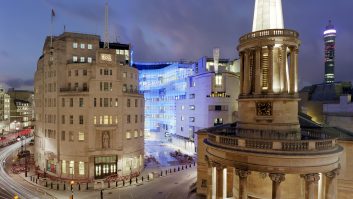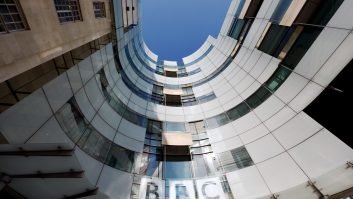Once David Clementi announced in June that he intended to stand down as the BBC’s chair in February 2021 speculation immediately began as to who would be his successor.
A number of names have been floated as possible contenders.
In September, former Daily Telegraph editor Charles Moore was said to be the government’s preferred choice. At the time, analyst Alex DeGroote told TVBEurope he was surprised so many people had fallen for what he described as a “wind-up.”
“The role of a chairman is mainly around governance, not strategy. The BBC chairman is not a Soviet-style dictator, he works with other board members and stakeholders,” added DeGroote.
Reaction within the industry, and the BBC itself, was overwhelmingly negative with Clementi himself telling the DCMS select committee, “I hope the government will encourage well-qualified candidates to apply so there is a strong and diverse field, rather than putting them off by giving them the impression there is already a preferred candidate.”
Later that same week, Moore let it be known that he had dropped out of the race.
In early October, former head of the BBC’s political unit Sir Robbie Gibb was named as the government’s preferred alternative. Gibb left the BBC in 2017 to move to Downing Street as former prime minister Teresa May’s director of communications.
Broadcaster David Dimbleby is also said to be considering throwing his hat into the ring, telling the BBC’s Newscast podcast, “You want somebody in charge of the BBC who is sympathetic not to the BBC as an institution but to the concept of the BBC as reflecting the whole richness of British life.”
Former chancellor of the exchequer George Osborne is also said to be a possible candidate with reports suggesting he is being encouraged to apply for the role. Other names being linked with the position include Trevor Phillips, the former chair of the equalities watchdog, and former culture secretary Nicky Morgan.
Both Osborne and Morgan are now said to have decided not to put their names forward.
Former Goldman Sachs banker Richard Sharp could also be a possible contender. He was chancellor Rishi Sunak’s boss when he was at Goldman and was also an adviser to prime minister Boris Johnson during his time as London mayor.
He took an unpaid role advising the Treasury when the coronavirus pandemic hit, and played a part in organising the £1.5 billion arts bailout and a £500 million insurance deal to help TV production restart.







